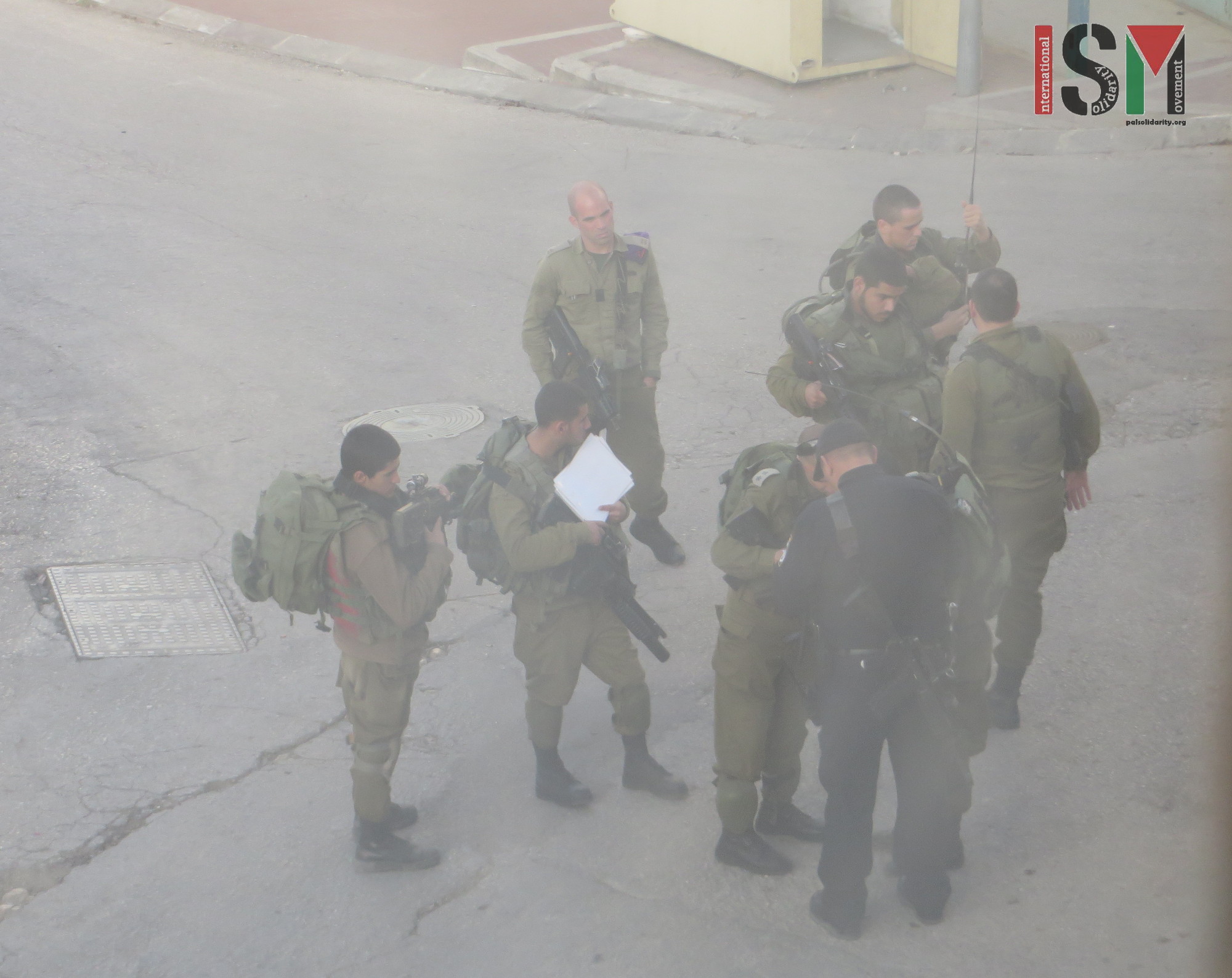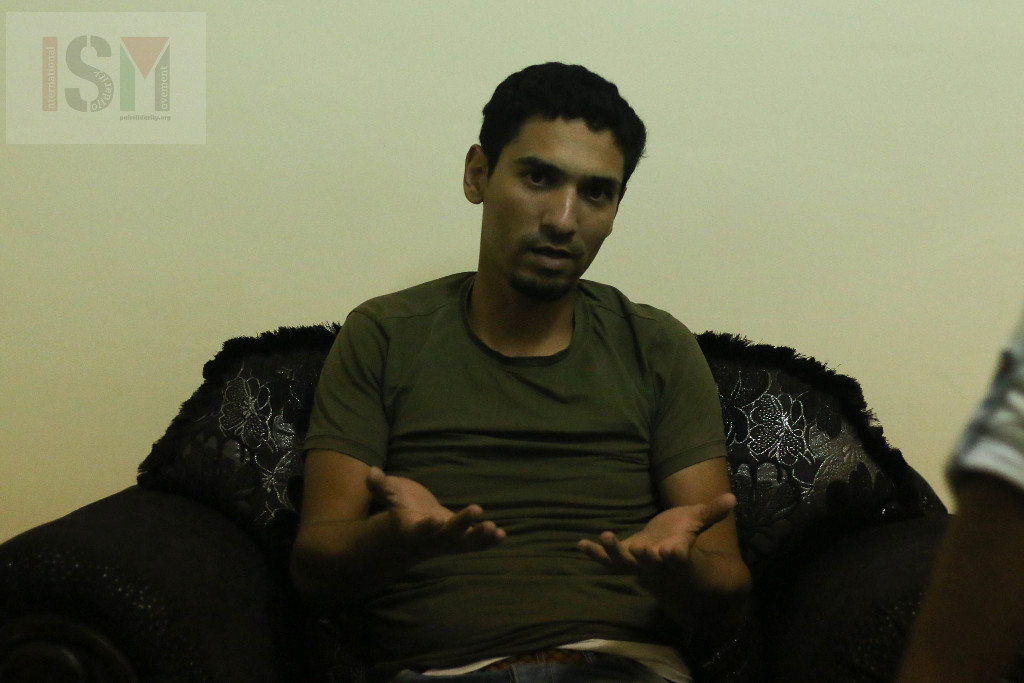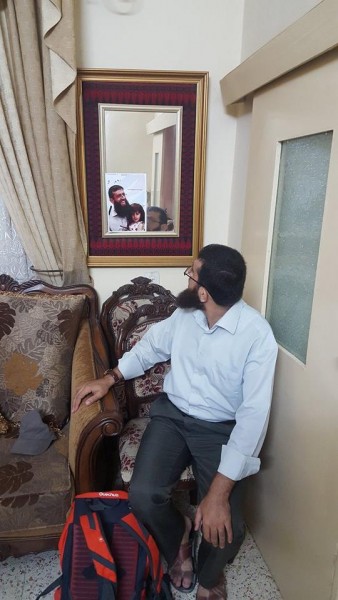Tag: Prisoner
-
Arbitrary arrest of two internationals in Hebron
26th November 2015 | International Solidarity Movement, al-Khalil team | Hebron, occupied Palestine Sunday 22nd November 2015, two international solidarity activists were arrested by Israeli forces on the allegation that they were ‘staying in a closed military zone’ in occupied al-Khalil (Hebron). One German human rights defender passed a checkpoint manned with a group of…
-
Punished for his work: medic Ahmad Nasser describes his recent arrest
November 10th, 2015 | International Solidarity Movement, Huwarra Team | Ramallah, Occupied Palestine In the early morning of November 2nd 2015, Ahmad Nasser was kidnapped by Israeli forces from his home near Ramallah. He was accused of attempting to kill soldiers by throwing stones and molotov cocktails, and was released without charge 15 hours later. He was…
-
Portrait with Fire: Khader Adnan
24th October 2015 | International Solidarity Movement, al-Khalil team | Anata, occupied Palestine “Some people think being jailed is a destiny. I say freedom is a destiny.” In Heather Christle’s stirring poem, Self Portrait with Fire, bending to conceal flaming legs, (s)he sets the grass on fire. On this day, sitting with Khader Adnan, Palestinian…



